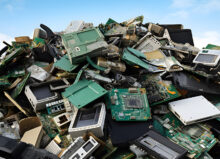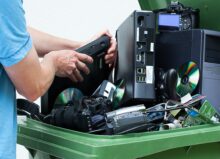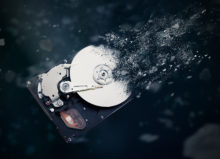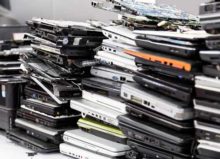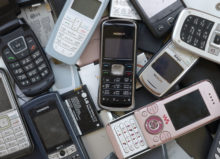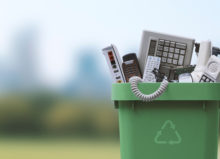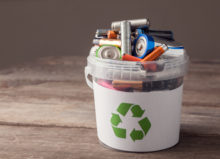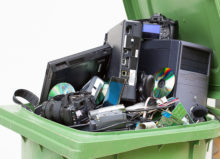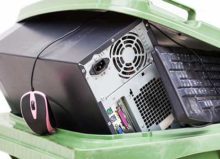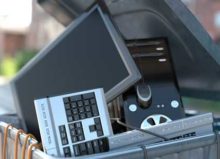What Is Data Destruction?
Data destruction and data sanitization are terms that are so easily confused that many professionals use them interchangeably. There are significant differences between physical and data sanitization and destruction. Find out how these terms compare and how High Tech Recycling can help you protect your data when recycling hard drives.
Definition of Data Destruction
Any time data is made inaccessible or unusable; it’s destroyed. Data destruction is used to describe damaging or permanently compromising data on the following devices:
- Hard drives
- Servers
- Other electronic media
The destruction process often uses degaussers and other high-tech devices to comply with strict standards of data protection. It doesn’t, however, typically include any verification process. If you want certification or any other verification that your data is inaccessible, you need data sanitization.
Destroying data is a necessary step before replacing personal or business hard drives. Without this step, your data may be at risk. Whether you sell or dispose of your hard drive, motivated individuals could find it and restore any data that you deleted. Simply deleting items from your computer isn’t enough to protect it from theft. To secure your data, you must use data sanitization techniques. Explore the steps required to verify your personal or business information is safe.
Physical vs. Data Destruction
Destroying data isn’t the same as destroying the device that stores it. Physical destruction includes shredding, breaking, or disposing of hard drives to prevent individuals from accessing your data. There are a few reasons to consider avoiding physical device destruction.
First, it may not be environmentally friendly. Destroyed disks could end up in a landfill rather than being recycled. Disks include costly materials that should be recycled to create a more eco-friendly industry.
Second, physical destruction prevents hard drives and storage devices from being recycled. The recycling process avoids waste in the industry by allowing devices to be reused. Once verified, complete data destruction allows your hard drive, data tape, or other storage items to be repurposed.
Finally, physical destruction may render the device unusable, but that doesn’t mean it will prevent your data from being accessed. Even after being physically shredded, hard drives and solid-state drives may still be accessed by hackers. You must choose a thorough data sanitization process to keep your confidential information safe.
Destruction vs. Sanitization of Data
For a thorough verification process, you need to choose data sanitization. In addition to the data removal through reformatting, degaussing, or physical shredding, sanitization reviews the hard drive or other devices for signs of remaining data.
Only after the information is certified to be unobtainable is the storage device considered sanitized. This process is more thorough but offers you peace of mind if you’re attempting to sell or recycle your storage device.
Data Sanitization Services
Choose a sanitization service that follows the Department of Defense 5220.22M recommendations. This includes state-of-the-art software and professional degaussing machines to protect personal and business data.
Data erasure starts by writing 0s and 1s in a random series across the storage equipment. This process replaced 100% of the data at the byte level. You can then receive a report verifying that the process has rewritten all the data. Data erasure in this way can be time-consuming compared to other methods, such as degaussing.
A professional degausser is a more efficient way to quickly and securely remove data from hard disk drives and storage tapes. It irreversibly damages hard drives but still allows the raw materials to be recycled. High Tech Recycling can perform this service as part of your technological recycling and information protection strategy.

